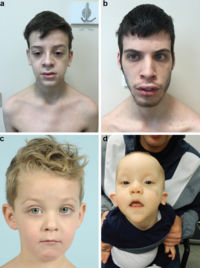
Photo from wikipedia
Background Attention deficit hyperactivity disorder (ADHD) is a neurodevelopmental disorder characterized by persistent difficulties with attention, increased impulsivity and hyperactivity. Comorbidity is often reported in adults with ADHD with a… Click to show full abstract
Background Attention deficit hyperactivity disorder (ADHD) is a neurodevelopmental disorder characterized by persistent difficulties with attention, increased impulsivity and hyperactivity. Comorbidity is often reported in adults with ADHD with a range of 60–100% of patients having at least one co-morbid condition. Objective The purpose of this study is to determine the prevalence of ADHD among university students and to investigate some co-occurring symptoms and disorders. Aims We aimed to raise awareness of adult ADHD and underscore its co-morbidity. Method 486 undergraduate students at Bezmialem Vakif university in Istanbul filled in the Adult ADHD Self-Report Scale (ASRS), Beck Anxiety Scale (Beck-A), Beck Depression Scale (Beck-D) and a purpose-designed structured socio-demographic form. Results Our results revealed that 6% of participants reported significant ADHD symptoms using 1.5 standard deviation above mean on the ASRS. 67% of students with significant ADHD symptoms had a psychiatric history other than ADHD. History of depression, anxiety and sleep problems were significantly higher in this group (P < 0.05). They scored higher on Beck-A and Beck-D (P < 0.05). Students with significant ADHD symptoms reported more night eating, binge eating behaviours and more headache (P < 0.05). There was no statistically significant difference in the history of epilepsy, asthma, allergy and diabetes. Family history of psychiatric disorder particularly ADHD, depression and eating disorder were higher in the ADHD group (P < 0.05). Conclusion Our results demonstrate that ADHD is prevalent among university students with high co-morbidity. Hence people with ADHD need comprehensive and lifelong assessment and management of their symptoms and needs. Disclosure of interest The authors have not supplied their declaration of competing interest.
Journal Title: European Psychiatry
Year Published: 2017
Link to full text (if available)
Share on Social Media: Sign Up to like & get
recommendations!